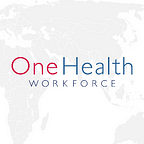From Life Styles to Life Values
“This is my first time going out of my hometown and setting foot on another island,” said Miranda. Miranda, currently a public health student at Mulawarman University, East Kalimantan, is one of the 56 participants of Global Health True Leaders 2.0 Training (GHTL 2.0). As the name implies, GHTL 2.0 is the new generation of Global Health True Leaders training designed for future leaders that are still in their undergraduate education. The training welcomed third year students and above, including those undergoing professional internship in medicine, veterinary medicine, nursing, and others.
For Miranda, the training was a completely new experience that taught her things she had never learned in school. The training consists of four days of in-class sessions and three days of field work and outdoor activities. Topics were delivered in accordance to INDOHUN Global Health True Leaders training module, designed to help students understand the basic principles in facing global threats such as emerging outbreaks and pandemics.
Throughout the training, participants learned about global health issues and challenges, infectious disease management, epidemiology, and risk analysis. They were also trained to develop a set soft skills in leadership, communication, behaviour modification, collaboration, advocacy, culture, trust, values, ethics, and many more.
GHTL 2.0 developed the awareness that every human being, including Miranda herself, has a role in facing future global issues and challenges, so we need to take active participation in shaping national and global health policies and other activities to solve the problems.
Being asked about the in-class sessions, Miranda shared her positive impressions on the topics delivered by Prof. Dr. Adik Wibowo, MPH, DrPH on the pinciples of social communication. Miranda gained a valuable experience when she, as a timid introvert, was pushed beyond her boundaries to confidently speak for her team in a role play. “It was a challenging yet interesting experience to work together with a group of new friends in a short time, to think fast and smart.” Another participant named Dylan shared his interesting experience of being trained in advocacy skills, how to speak well, in a systematic and convincing manner. He explained, “It was so hard to answer unexpected questions and also so tiring to make several scenarios of what we will do when meeting the stakeholder.”
Dylan, currently studying at the Faculty of Pharmacy, Bandung Institute of Technology, considered the in-class sessions very dynamic. He learned a lot from attending lectures delivered by expert trainers, being challenged with mind provoking questions, working together in groups to discuss and solve the exercise problems given at the end of every lecture, and having fun in games and ice breakers prepared by the committee in-between the classes. In this new generation of Global Health True Leaders training, many topics were delivered using entertaining and engaging visual aids, such as videos. One video made a lasting impression to Dylan. That was on the Ebola outbreak in Africa, which showcased the real-life example of how a complex problem can be solved with the involvement of many sectors. He understood that, “working in a team means we cannot go as fast as working alone but we could cover much wider range and slowly tackle the challenges.”
The tight training schedule, as well as the amount of tasks and homework one need to complete during the training set an example to the students on how difficult it is to be future global health leaders, with all the complex challenges within the health system. Participants were given individual and group tasks to work on, sometimes to the point where they got really exhausted and depleted. However, in those situations, they learned to apply the strategies of working collaboratively and provide support to each other, so they can complete all the tasks together.
Implementing teaching and learning methods that lead to discussion and collaboration is one of the most important strategies of GHTL 2.0. This was shown to be very helpful when the participants had their two-night stay in Gondosuli village. There, they lived together with the locals and joined them in their daily activities. With a majority of people working as farmers, collaboration and team work are inseparable from the lives of people in Gondosuli. From them, GHTL 2.0 participants learned about the benefits of working together and the exemplary discipline required from the farmers to produce our foods that we often take for granted.
Not only that, the experience of living in a village taught the participants about modesty and sustainable living, away from the modern lifestyles and technology. The ease of communications using smartphones and laptops was not a common thing in the village. And being there, participants like Miranda and Dylan learned to improve face-to-face conversations, and understand the values of communications and togetherness. That kind of experience is exactly what GHTL 2.0 wants to offer to the younger generations, many of them are millennials who live in the urban environment.
The many life values taught during the training has made GHTL 2.0 an unforgettable experience. A supportive environment for collaboration was palpable as the training reached its end, when participants conducted their community intervention activities. They successfully worked across disciplines in the area of human, animal, and environmental health with great efficiency.
Miranda, who had promised to herself not to stay in her comfort zone, successfully proved that courage will pay with a good result. Not only she discovered new places and friends, she also found valuable life values for herself.
GHTL 2.0 is a story of change. It is a story about young people transforming into true leaders by changing their minds, shifting their focus from life styles to life values.
About the Author
Alexandra Tatgyana Suatan is a networking officer with the Indonesia One Health University Network (INDOHUN), a network supported by the USAID One Health Workforce project.
About the Translator
Samuel Josafat Olam is a communication and networking manager at the INDOHUN.
